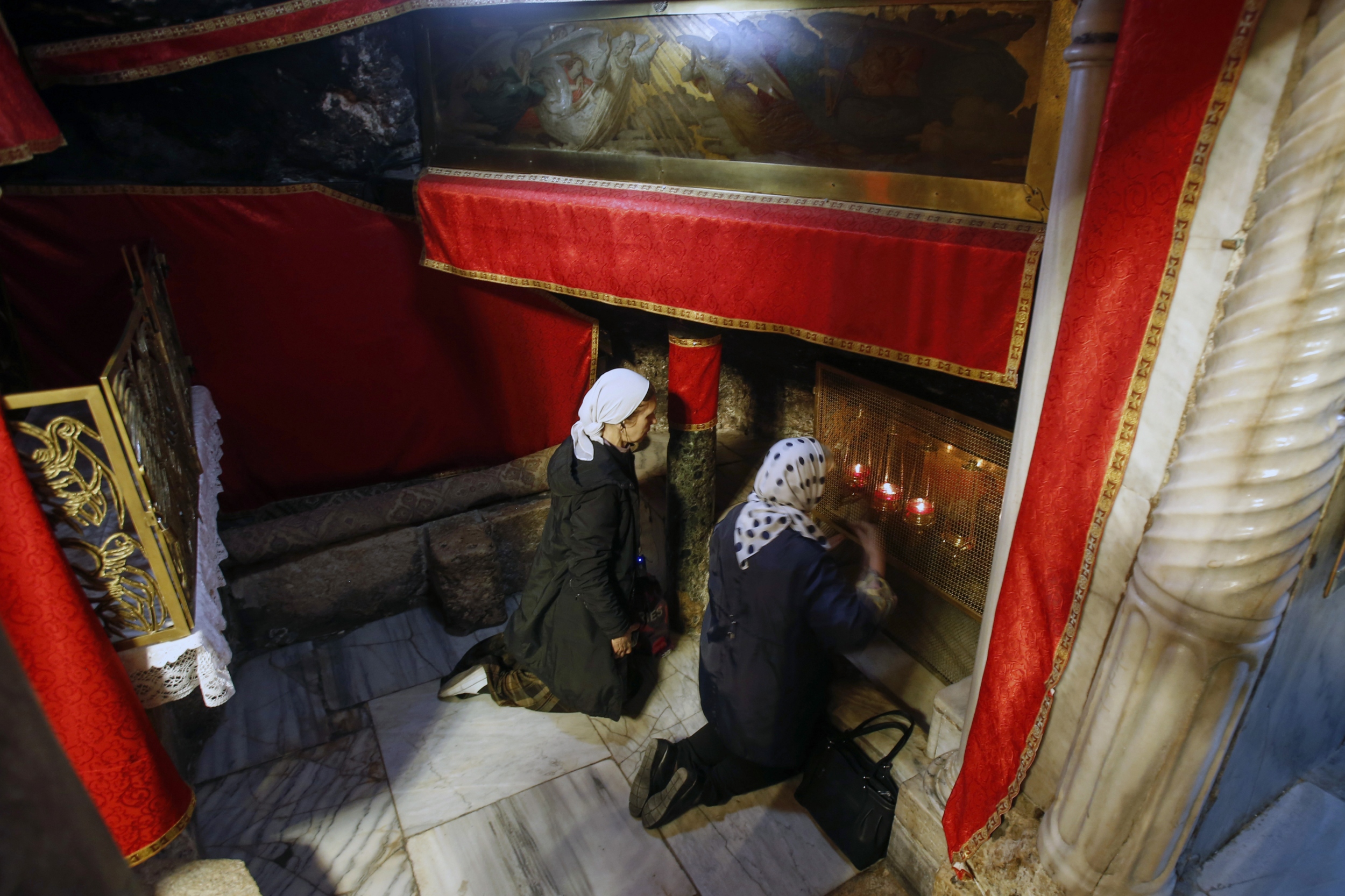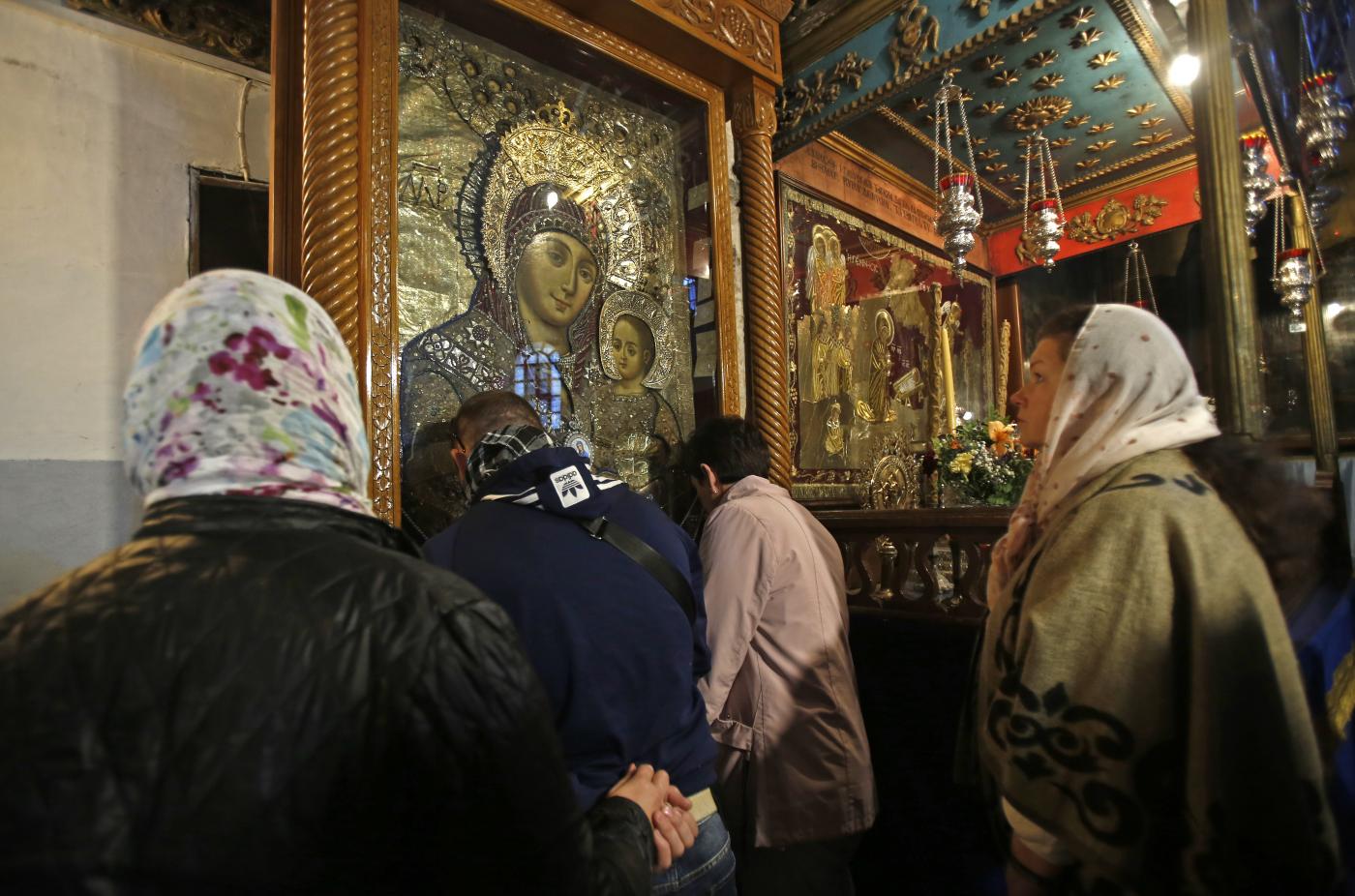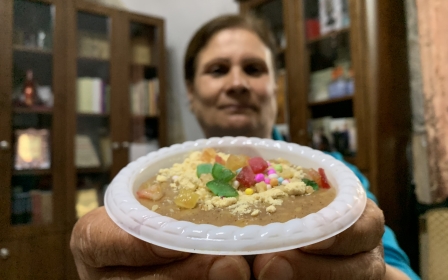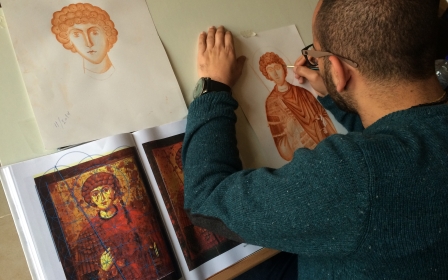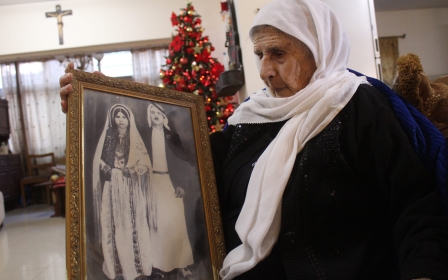This Christmas, here are seven things Palestinian Christians need you to know
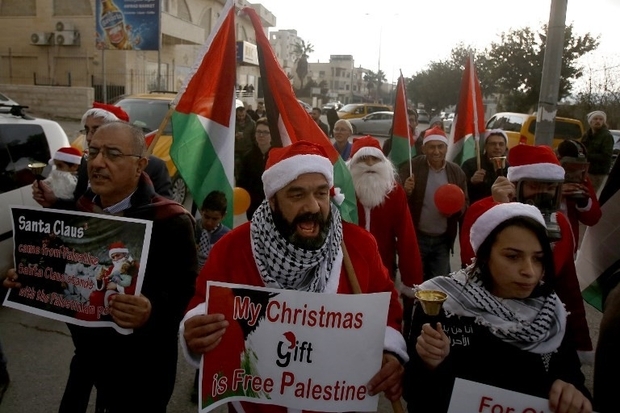
Christmas is a delightful season, the most wonderful time of the year indeed. And yet, as Palestinian Christians living in North America and Australia, we experience a strange disconnect during the festive season.
We watch as shopping malls become inundated with Christmas trees, jolly Santas, candy canes, reindeer and sleighs. We are accustomed to the usual nativity display of three - usually white - wise men approaching a white Jesus, Mary and Joseph (Issa, Mariam and Yousef in Arabic).
You, our neighbours and friends, send us cards hailing the birth of a saviour born in Bethlehem, and carolers arrive at our doors singing O Little Town of Bethlehem.
It feels strange because, for many of us, Bethlehem is the town we visited on summer holidays or where our families are rooted. And those memories are distant from the imagined landscape found on a Christmas card.
Furthermore, while we enjoy the traditional Hollywood Christmas classics that grace our screens, we watch with curious amusement as a white actor portrays a Middle Eastern Jesus.
Stay informed with MEE's newsletters
Sign up to get the latest alerts, insights and analysis, starting with Turkey Unpacked
We are Palestinians who grew up in the diaspora, in Christian families; we visited and even lived in Palestine at points in our lives. And here is what we want other Christians around the world to know about our ancient community.
1. Yes, Palestinian Christians exist
Some of you may put up signs on your lawn that say “Jesus: the Reason for the Season”, but our signs say “Palestine: the Region of the Season”.
Thank you for the Christmas trees, but the actual religious component of this whole holiday emanated from our culture.
The Judeo-Christian western gaze often portrays all Palestinians as Muslims, misrepresenting the Palestinian struggle as an "Islamic struggle". It is not.
While Christians might be considered a "minority" within Palestine, this centuries-old community is an integral part of Palestinian society.
Westerners, however, cannot fathom the diversity that exists within Palestinian society. The comical consequence of this simplistic understanding is that many of us, growing up, living and working in non-Arab countries, are not only mistaken as Muslims but are asked, in all sincerity, when it was that we or our families converted.
2. We aren’t converts. In fact, you are
That question - “when did you convert?” - is a running joke among our community, just so you know.
We have generated lots of answers to this question, including “around 33AD” and “you’re the one who, in fact, converted”.
In reality, some of us hail from the same holy cities that are talked about in churches and Sunday schools across the western world: Bethlehem, Nazareth, Jerusalem and more.
So the next time you watch a white Mary and Joseph get turned away from an inn and end up in a stable (it was actually a cave), remember that Palestinians lived (and continue to live) there.
3. We keep Christian traditions alive
Europe started to adopt Christianity while it was part of the Roman Empire, in the 4th century AD. Before that, it was kept alive by Christians in Palestine and the wider Levant region, where ancient traditions still thrive today. One of the most beautiful is the Easter tradition, when thousands of devotees flock to the Church of the Holy Sepulchre in Jerusalem.
The patriarch of the Greek Orthodox church carries out a flame from the crypt - the space where Christians believe Jesus was buried after his crucifixion. Bells ring out, announcing that Christ is risen, and that flame, the Holy Fire, is used to light other candles, which are then dispersed to Christian villages and towns.
The whole town awaits, with their own candles, and then cheers when the person entrusted with protecting the flame rides in on a horse (or in recent years, in a car). They flock to the flame to light their own candles.
This is a beautiful, heartwarming custom, which symbolises unity.
4. Your pilgrimages tend to ignore our existence
We often hear you describe your Christian pilgrimages to the holy land, and we see your Facebook posts about visiting different “holy sites in Israel”.
Were you even made aware, during your once-in-a-lifetime trip, that your fellow Christians are restricted from visiting many of those very sites? For example, Israel banned Christians in Gaza from going to Bethlehem for Christmas in 2019.
5. We worship Allah too
You’ll hear us say “inshallah” all the time. It means “God willing” and it is also a polite way to say: “Maybe I’ll come to your party, but don’t count on it.”
Let us once again explain that in Arabic "Allah" means "God".
Palestinian Christians use these words and expressions because… Arabic is our language.
Our greeting is “assalamu alaykum”. We call celebrations such as Christmas, Easter and even birthdays “Eid”.
Yes, Muslims around the world know these expressions because they appear in Islamic texts and Arabic is also the language of Islam.
It’s worth noting that the great Palestinian scholar Edward Said once described himself as a Christian wrapped in a Muslim culture.
6. Like Muslims, we also experience Islamophobia
Hollywood loves to tell our stories but rarely in a favourable way. You do not have to look far for TV shows and movies that stereotype Arabs and Muslims as aggressive, barbaric men and submissive and oppressed, yet dangerous, women.
These stereotypes are linked to anti-Arab racism, which affects all Arabs, irrespective of their faith.
Many of you, as viewers, feel no discomfort around images of a white Jesus from Bethlehem, but the presence of a Palestinian man from Bethlehem today can be a source of fear and hatred - and that bothers us.
7. Stop using us to rationalise Zionism and Orientalism
Being a Palestinian Christian in the diaspora is especially difficult because we cannot go and visit our homeland easily.
We grow up learning how to counter people who try to use our existence to rationalise Zionism or ideas rooted in Orientalist thought.
For instance, we have to put up with the Zionist and Orientalist mantra that the State of Israel is the only democracy in the region and that it is protecting us from Muslim Palestinians.
We like the way you celebrate the holiday season. We see you. See us as well, and listen to our stories
Zionists also put forward the claim that the dwindling number of Christians in Palestine is due to Muslim oppression.
Palestinian Christians do indeed suffer; we were dispossessed from our homes in 1948, a colonial entity built an apartheid wall on our land and bombs are dropped on our cities and towns.
However, the culprits here are not Palestinian Muslims but the Israeli government.
Lest you think we dislike your Christmas decor, we should let you know that Christmas trees stand tall, right at this moment, in Palestinian towns such as Ramallah and Bethlehem.
Palestinian grandfathers are getting ready to dress up in red suits, red hats and fake white beards to take pictures with children in their neighbourhoods.
Palestinian children are practising songs with their choirs for the Christmas day mass.
We like the way you celebrate the holiday season. We see you. See us as well, and listen to our stories.
Also, you’re welcome for Christmas.
The views expressed in this article belong to the authors and do not necessarily reflect the editorial policy of Middle East Eye.
This article is available in French on Middle East Eye French edition.
Middle East Eye delivers independent and unrivalled coverage and analysis of the Middle East, North Africa and beyond. To learn more about republishing this content and the associated fees, please fill out this form. More about MEE can be found here.


